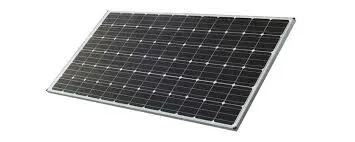solar panel performance in winter
Performance of Solar Panels in Winter
As winter sets in and temperatures drop, many homeowners and businesses may have concerns about the efficiency of solar panels during this season. While it is true that solar panel performance can be affected by various factors associated with winter weather, these devices continue to operate effectively even in cold and snowy conditions.
The Science of Solar Panels
Solar panels work by converting sunlight into electricity using photovoltaic (PV) cells. These cells generate direct current (DC) electricity when they absorb photons from sunlight. During winter, although the days are shorter and the sun may not be as intense, solar panels can still generate power, as they do not require high temperatures to function. In fact, the efficiency of solar panels often increases in cooler temperatures.
Snow and Solar Panels
One of the biggest misconceptions about solar panels in winter is the impact of snow. While heavy snow can temporarily cover panels and reduce their ability to capture sunlight, most solar panels are designed to be somewhat self-cleaning. The angle of the installation and the smooth surface of the panels allow snow to slide off easily when the sun shines, making it less of a concern than many believe. Additionally, the sun’s rays can still penetrate thin layers of snow, enabling the panels to generate some electricity.
Reduced Sunlight Hours
solar panel performance in winter

Winter days are significantly shorter, which means solar panels receive less sunlight overall. However, this does not entirely negate their usefulness. The lower angle of the sun during winter allows for different light exposure, and even on cloudy days, solar panels can harness diffused sunlight. Innovations in solar technology, such as the use of bifacial panels, which capture light from both sides, further optimize energy production, even in less-than-ideal conditions.
Maintenance Considerations
Proper maintenance becomes crucial during winter months. It is essential to regularly clear away snow and ice accumulation if it does not melt off naturally. This maintenance can maximize sunlight exposure and, consequently, energy production. Homeowners should also ensure that the panels, mounts, and wiring are in good condition, as the cold weather can sometimes lead to issues if not properly maintained.
The Long-Term Benefits
Despite the challenges posed by winter weather, solar energy remains a valuable investment year-round. In regions with significant winter sunlight, solar panels can still produce substantial amounts of energy, leading to lower electricity bills and reduced reliance on fossil fuels. With the rising concerns about climate change and increasing energy prices, the adoption of solar energy continues to see growth.
Conclusion
In conclusion, solar panels are capable of performing effectively during the winter months, contrary to common misconceptions. Cold temperatures can actually enhance solar panel efficiency, and most panels manage snow coverage without significant loss of power generation. With proper maintenance and understanding of solar performance in varying weather conditions, users can optimize their systems for all seasons. By making the most of solar energy, individuals contribute to a more sustainable future while also enjoying the long-term financial benefits associated with this renewable energy source.
-
Unlocking Energy Freedom with the Off Grid Solar InverterNewsJun.06,2025
-
Unlock More Solar Power with a High-Efficiency Bifacial Solar PanelNewsJun.06,2025
-
Power Your Future with High-Efficiency Monocrystalline Solar PanelsNewsJun.06,2025
-
Next-Gen Solar Power Starts with Micro Solar InvertersNewsJun.06,2025
-
Harnessing Peak Efficiency with the On Grid Solar InverterNewsJun.06,2025
-
Discover Unmatched Efficiency with the Latest String Solar InverterNewsJun.06,2025







